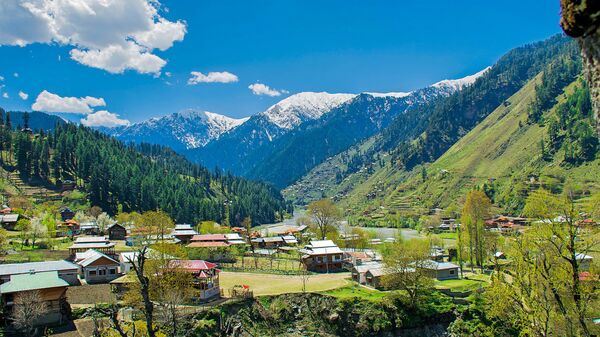Islamabad has no plans to merge Azad Kashmir (Pakistan-administered Kashmir) and India-administered Kashmir, the Pakistan Foreign Ministry clarified on Thursday.
“We have no plans to merge Azad Jammu and Kashmir with Pakistan’s territory, all such reports are presumptions, contrary to reality,” Pakistan Foreign Ministry spokesperson Aisha Farooqui said.
Speculation that Pakistan was planning a merger date from a government order on 11 December that said: “President of Azad Jammu and Kashmir renamed the 'Azad Jammu and Kashmir Management Group' as 'Jammu and Kashmir Administrative Services' (JKAS) with immediate effect.”
In October 2019, India released a new political map after the formation of two new federally administered Union Territories - Jammu and Kashmir, and Ladakh. The map showed three districts of Pakistan-administered Kashmir – Muzaffarabad, Mirpur and Punch – as a part of Jammu and the Kashmir Union Territory. It also showed Pakistan-administered Gilgit-Baltistan as part of Ladakh Union Territory.
This had led to backlash from neighbouring Pakistan, which rejected the new political map of India. Shortly thereafter, reports emerged that like India, Pakistan was also planning to merge India-administered Jammu and Kashmir and Pakistan-administered Jammu and Kashmir as its own territory.
In the first war over Jammu and Kashmir between India and Pakistan in 1947, the area of Jammu and Kashmir, known as “Azad Kashmir” (independent Kashmir) in Pakistan, came to be known as India’s “Jammu and Kashmir”.
The fragile relationship between New Delhi and Islamabad further deteriorated in 2019 following an attack on Indian security forces by a suicide bomber of the Pakistan-based Jaish-e Mohammad (JeM) militant group in February. India launched a reprisal air strike on 26 February in Pakistan’s Balakot region to destroy alleged JeM camps.
The following day, Pakistan Air Force retaliated, leading to a dogfight, in which an Indian fighter jet was downed.
Fearing violent protests and provocation by local politicians to agitate against the Indian parliament’s decision over special status, the Narendra Modi government imposed certain restrictions while suspending Internet connectivity along with social media in the Kashmir Valley. Most of the key politicians of Kashmir were put under custody or house arrest in apprehension of political protests.
Amid reports of Kashmir restrictions impacting the local population due to months long curfew conditions and Pakistan raising the human rights of Kashmiris at various international forums, India has since gradually relaxed a lot of restrictions in the region.



